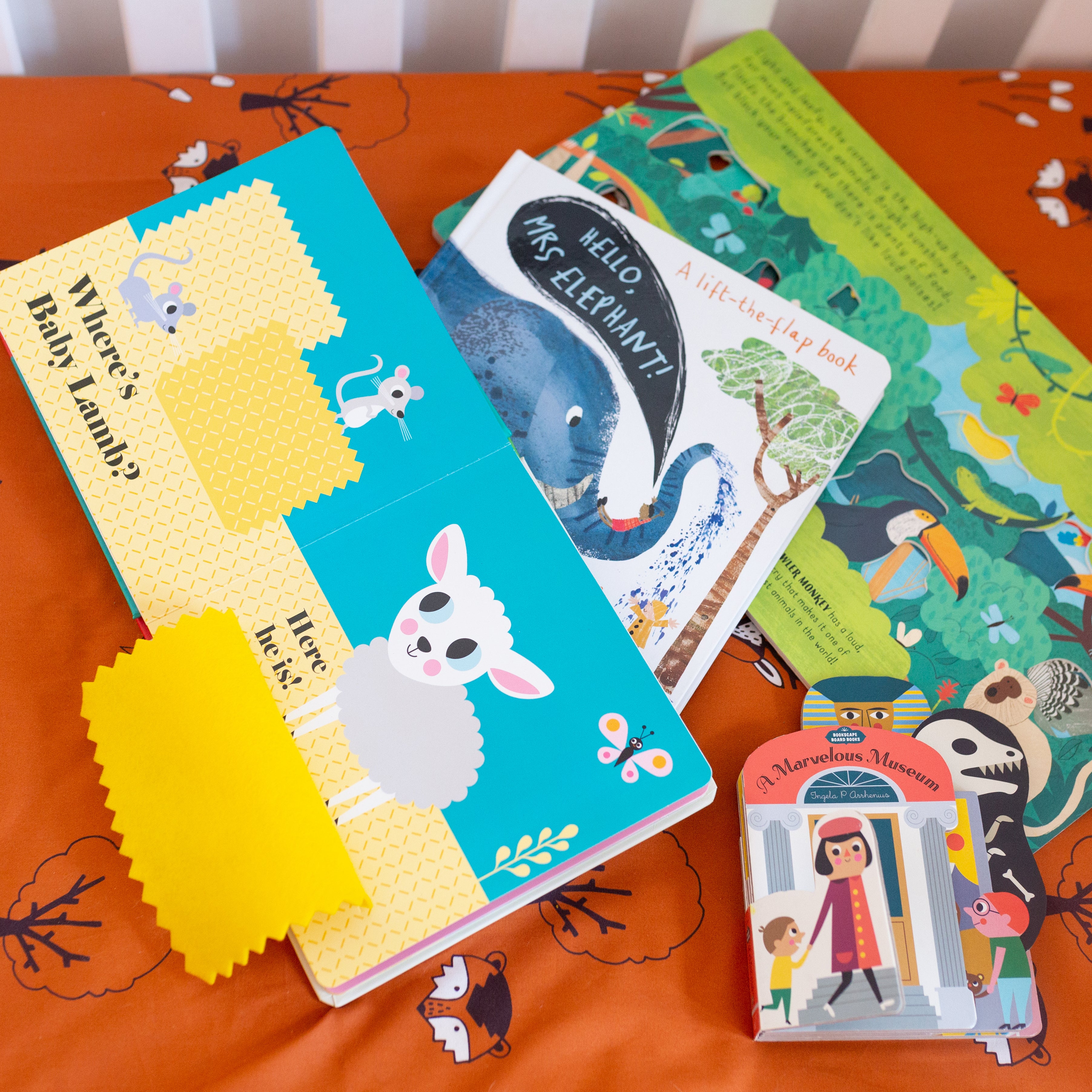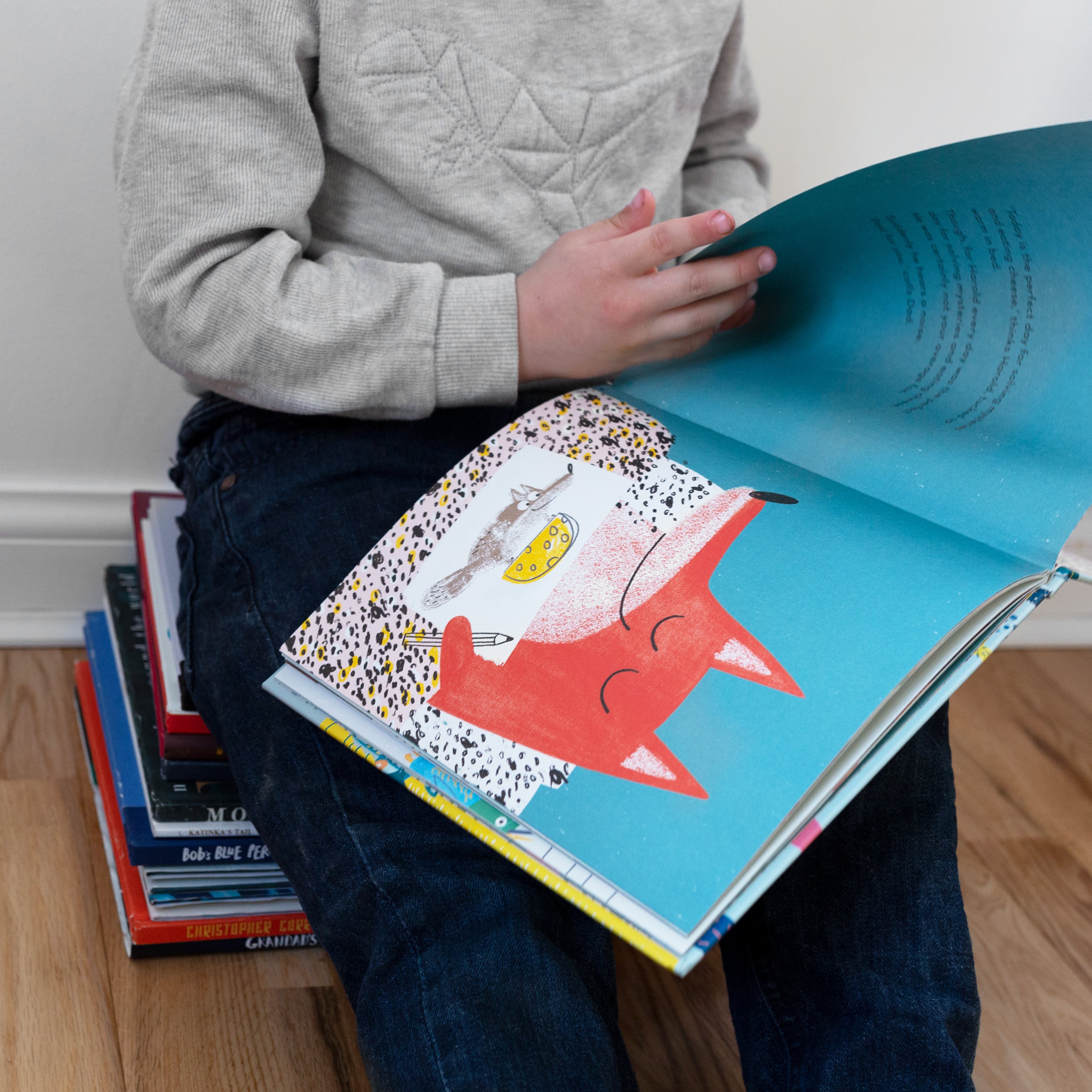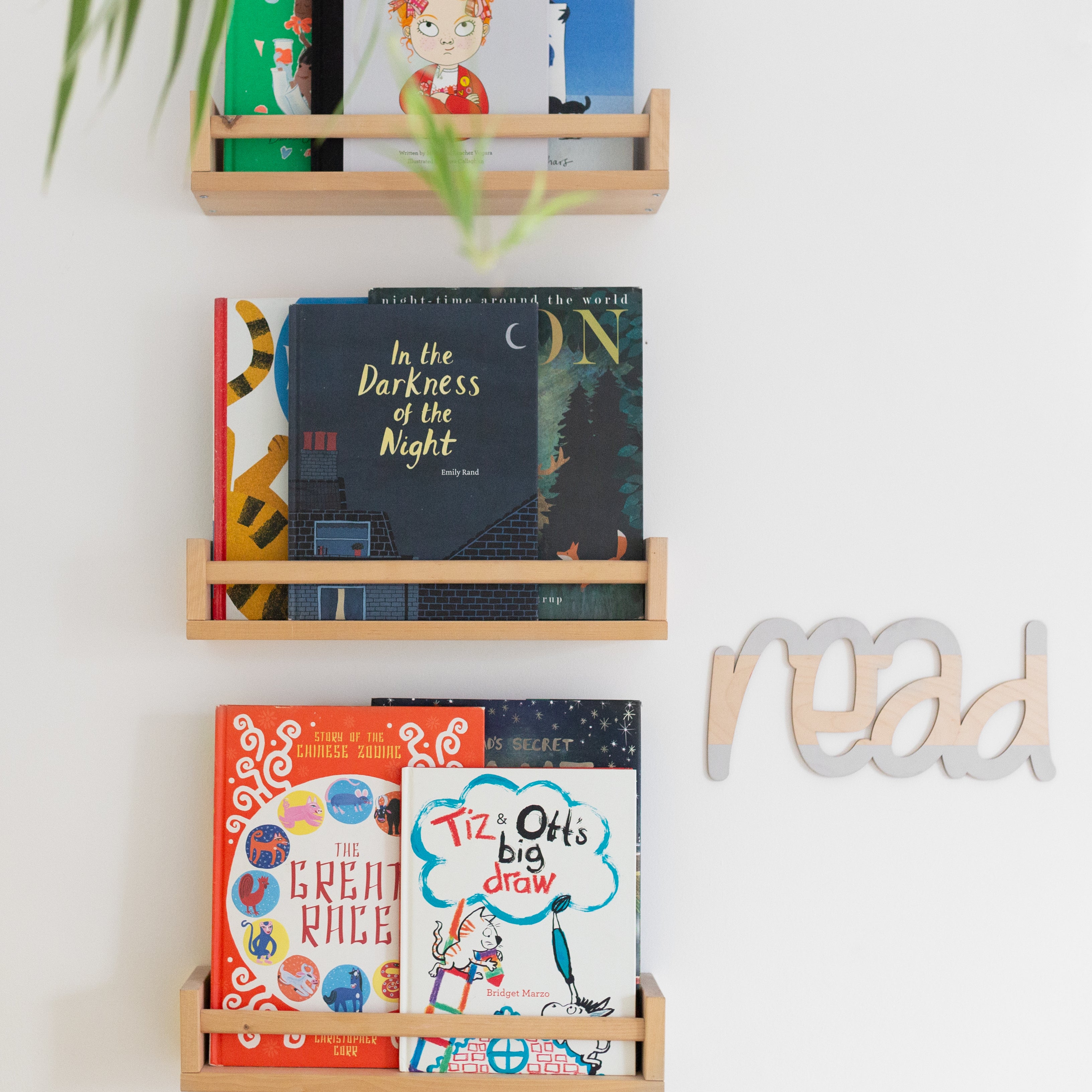Parenting with Stories: 100 Happy Bedtimes
by ROSIE THWAITES
The child rips open the shiny wrapping paper to reveal… a book. Crestfallen, they toss it aside before pouncing on a more promising paper-enrobed object, hopefully with bleeps and lights. Even the parents’ faces can be a pale echo of their child’s; ‘A book? When I gave your child a Super Blah Blah?’
I have witnessed this scene many times, but I doggedly persist in giving books to children. Why? Because I remember what the child and perhaps their parents have momentarily forgotten; that a book is a hundred happy bedtimes. Maybe more if it becomes a favourite. When my twins were little, people used to ask why I bathed them every day; why bother, when it’s such a palaver? Because it bought me some freedom; the warm, separating water induced a sort of calm independence; I was physically unencumbered for 10 precious minutes, watching them through an exhausted haze from my seat on the lid of the toilet.
The bedtime book serves the same function. It’s like inviting someone else into the house, (someone who speaks perfectly composed, benevolent sentences), to take over and give me a rest for a minute. In fact, a good book is like a perfect parent; patient, consoling, helping children to navigate fear and difficulty. And surely, when I channel this perfect parent by reading their words through my mouth, my voice, a bit of it rubs off on me - at least in my children’s eyes? No matter how I might have snapped or shouted that day, the book lulls us back into equilibrium at bedtime; I sound like the calm, wise and in-control parent I have only patchily been, and my children are left with this version of me before going to bed, to dream dreams hopefully inflected by these feelings as well. And to be honest, that calm, wise parent is consoling me too; my own ‘inner child’ needs a bit of good parenting after a trying day.
In daylight hours I mine those bedtime stories and put them to further use; I don’t directly copy, but those hundreds of beginnings, middles, and ends I have heard and read over the years have left me with a good sense of how to create my own.
My youngest child, following the trope, is the most contrary. As he refuses to put his pyjamas on, or take them off, or get in, or out of the bath, a fictional character comes to my rescue, ‘Little Jonathan’. I need to credit Hoffman’s ‘shock Headed Peter’ here, and also Busch’s ‘Max and Moritz’ (those Germans knew how to write a gruesome cautionary tale) although mine are far tamer. For example, Little Jonathan’s fingernails grow so long that bats mistake them for trees, and roost in them. In fact they’re endangered bats, so long after Little Jonathan has repented not cutting his branch-like nails, the bat protection order compels him to keep them long. All the while I’m telling this or similar tales, I’m trimming my entranced son’s nails, or washing his face, or dressing him. Also, I suppose Little Jonathan acts out in fantasy, and to extremes, my son’s desires (or desires ‘not to’) – and that seems to satiate them in some way.
Stories help my older sons too. For years now, the stressful trot to primary school has been greased by words. These stories always star the listeners, “Two little boys, called __ and __”. When they were younger, anything that caught my eye would be quickly harnessed for the story, as I desperately searched for ideas in a pre-coffee running-late funk. The pom-pom on a beanie hat would become a baby polar bear to be secretly looked after. A discarded wrapper - a portent of a ‘chocolate war’ at school. A whole host of creatures variously inhabited the letterbox, and the local shop-keepers all had double-lives. The stories distract and soothe my kids at a fractious time, and – again - make me a better parent by distracting and soothing me too!
As my sons have grown, their particular interests have demanded to be taken into account. Lately we are accompanied to school by ‘The Golden Ninja’. If I include enough ‘beyblade’ battles, explosions or sweets, the son who is less keen on the whole ‘story thing’ usually ends up keeping-pace alongside me. Increasingly, my sons contribute to the stories, with details, characters and plot twists. (Later in bed, although they should be asleep, I’m secretly delighted when I hear them relaxedly spinning each other helter-skelter tales; they’re yet unencumbered by the conventions of story structure, they’re at the stage of honing their imaginations, and that’s right, I think.)
Many of our current stories cast a warming light on the school we are headed for; the playground is filled with marshmallow, or twisting slides. The teachers join in. It doesn’t seem to matter to my sons that real school could never come close to these fantasies. Like with Little Jonathan, the fantasy inflects the reality to some degree.
In fact, the reality is almost the opposite, with drama out of the curriculum and most English lessons taken up with the mechanics of reading and writing. Teachers of course shoehorn in as many stories as possible, but it’s not enough, especially and perhaps ironically, for my very dyslexic son. Stories seem to capture him completely – his powerful imagination means he can flesh-out every limb and fill every corner.
So avid is his listening he picks me up on every tiny inconsistency (of course the Golden Ninja would need to sharpen his knife, several times, as he bores through the 5-metre thick cell wall), yet he struggles to focus in the classroom. In education, it seems imagination is increasingly seen as a frivolous nicety. But the learning process is almost impossible without it. As is being a human.
Stories are an excellent way of redressing this imbalance. Tell them yourself, or mine the rich repository of 563 years of printed books. Books are expensive (less than a copy of the Gutenberg Bible would’ve set you back, but still likely costing more than a Super-blah-blah), but many libraries are clinging on by their fingernails, and charity-shops are often spilling with good ones. If you divide the cost of a new book by 100 bedtimes, it’s a bargain! And, hopefully next time our children are in a present-opening frenzy, on a festive or birthday morning, several books will be in amongst the hoard. The delight will come – just maybe not until bedtime.
Rosie Thwaites is studying an MA in Children’s Book Illustration, works at Smallprint independent bookshop, and is a mother.





